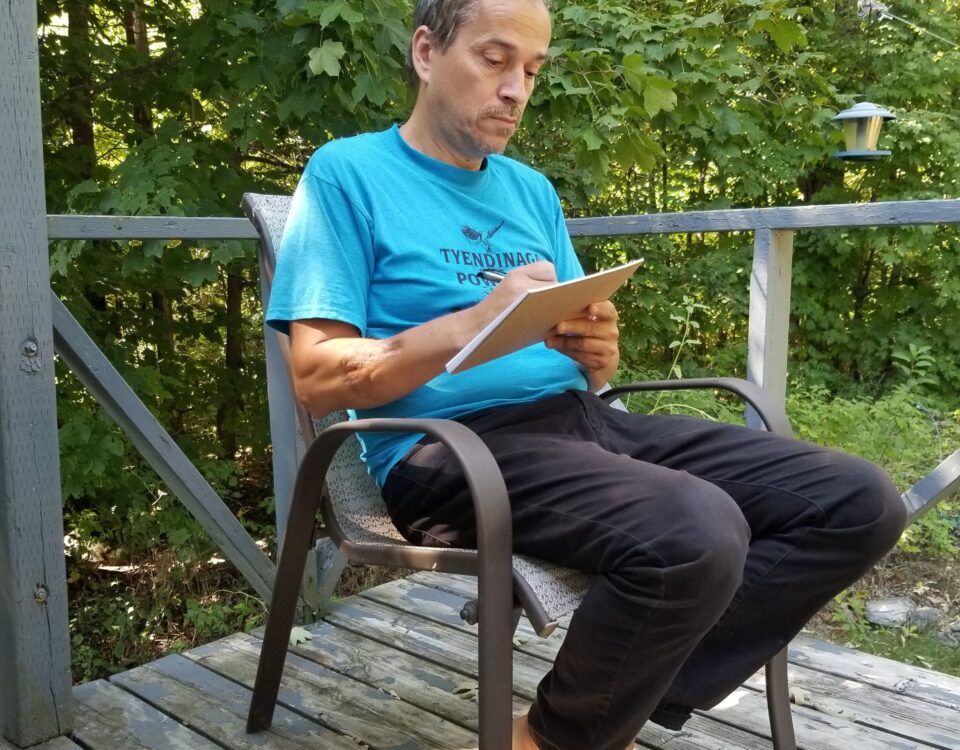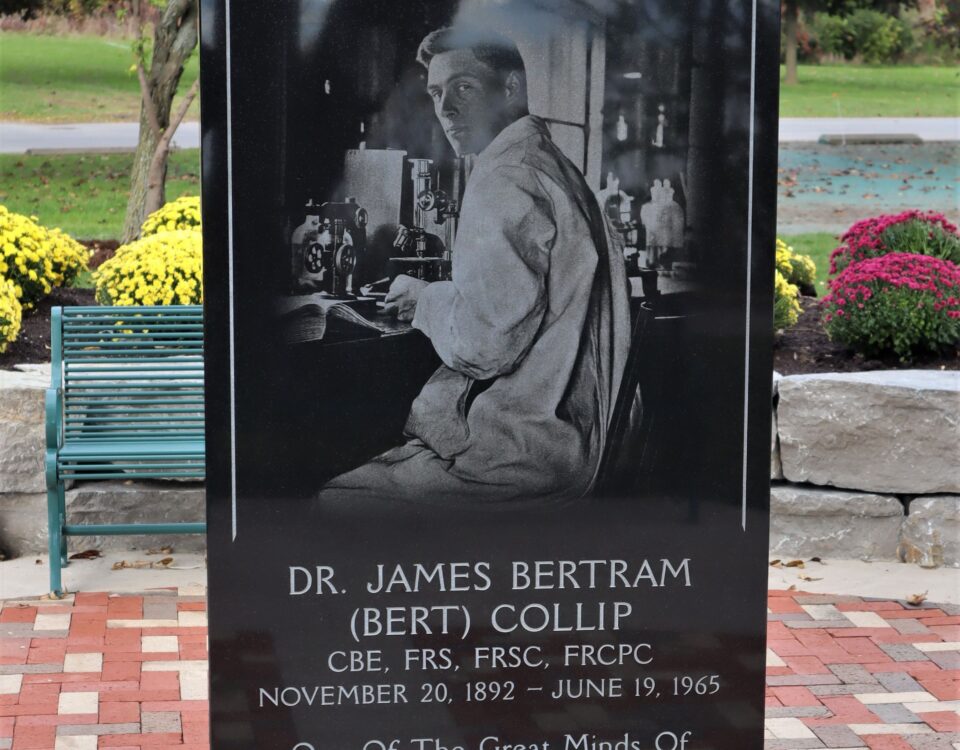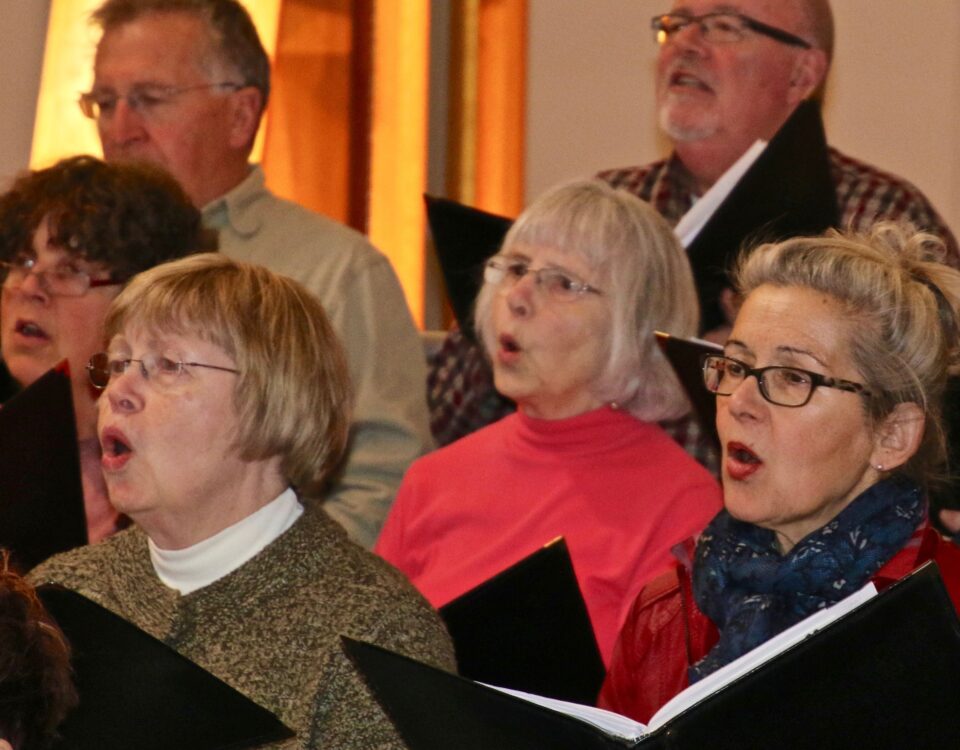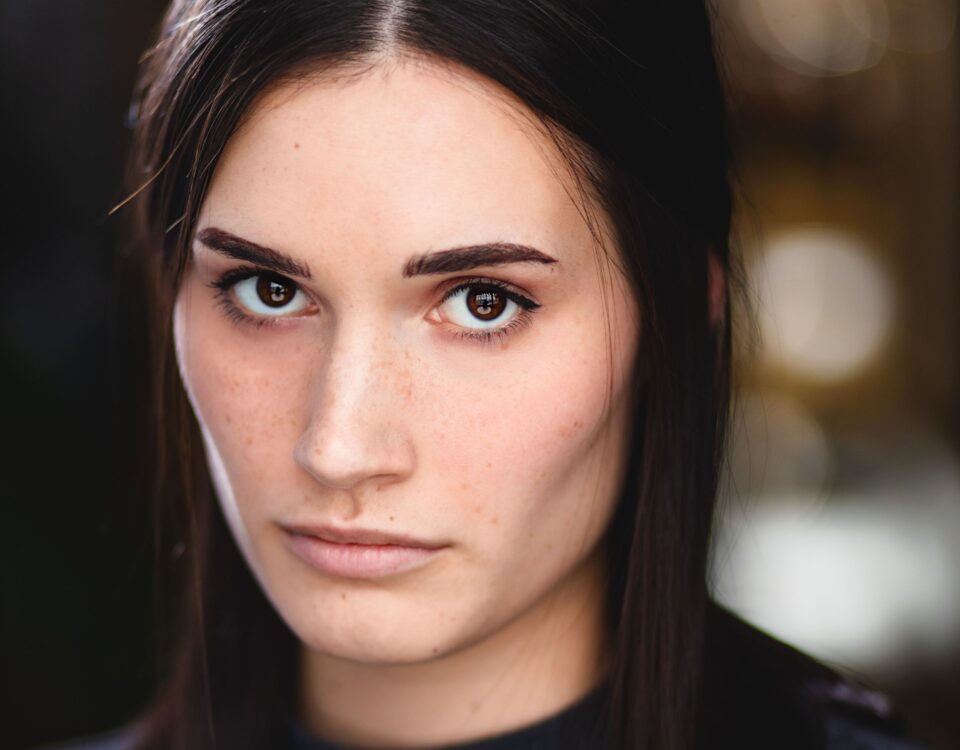Fred Leonard
Grandma’s Spirit Calling Us Home to Tyendinaga, co-authored by Fred Leonard Jr.
By Jennifer Shea
Tyendinaga Mohawk Territory

Growing up in Toronto, Fred Leonard Jr. had no exposure to his Indigenous Mohawk roots. He was not an avid reader nor writer. That changed in his 20s, when Leonard Jr. discovered the native history book, Bury My Heart at Wounded Knee. “In two weeks, I read it three times. I couldn’t even sleep.” That experience led to wanting to learn more about native culture and finding out about his roots.
When Leonard Jr. was looking to purchase his first home, he was guided to the Bay of Quinte area. He wasn’t aware of the Tyendinaga Mohawk Territory at that time, but a visit to the Territory’s Aboriginal Resource Centre provided the direction he needed for a genealogy search. He has since travelled across North America to meet native elders and learn traditional knowledge, spirituality, and history.
Leonard Jr. was hired on Tyendinaga Mohawk Territory to work on an environmental contaminants research project. While working there, he was often approached by residents who said, ‘You look like my husband’ or ‘You look like my cousin’, fueling his desire to learn more about his family’s history.
It was recommended that Leonard Jr. visit a seer, Doreen South, to try and connect with his ancestors. “I was very skeptical about these kinds of things, but I met her. She was telling me things about my family she couldn’t possibly have known.”
During his session with South, the spirit of his great-grandmother came through. “She said, ‘I have led you here. Over these years, I have led you to each book (you’ve read), and I want you to write a book about my life.’ I said, ‘I’ve never written a book before’. She said, ‘It is in you to do this’.”
Leonard Jr. was in his mid-40s, and he wasn’t sure where to begin. South offered that some of his great-grandmother’s messages would come through her, but most would come directly to him. He would sit at the computer or with pen and paper and be guided about what to write.
As a result, Leonard Jr. lists himself as co-author of the book with his great-grandmother, Yontheraha:wi (“she carries the basket”). The first half of the book is the story of Yontheraha:wi in her own words.
It’s her account of life growing up on Tyendinaga Mohawk Territory in the late 1800s through to her passing in 1943. She discusses home and family life, schooling, cultural traditions and the many hardships and challenges faced. She stresses the importance of family and traditions. “Your ancestors are a bridge to the past. Don’t forget us, because our stories matter. We are breathing life back into our stories.”
The book also features a section in the words of Shako’nikonhra rátyes (“he is along minding”), one of the twins born to Yontheraha:wi in 1903. He and his sister Ruby were abducted by an Indian agent as babies and never reunited with their mother while alive.
Leonard Jr. writes the second half of the book in his own words, summarizing much of the historical research he conducted and chronicling the challenges his people faced, including epidemics, wars, poverty, deprivation, environmental hardships, and suppression through colonization. “I want readers to remember about our culture through the book.”
Since the book was launched in 2021, it has been well-received. Author Doug George-Kanentiio says, “There is nothing like Grandma’s Spirit anywhere else in Iroquois-Indigenous literature, but there should be.”
Facebook: @FredLeonard


